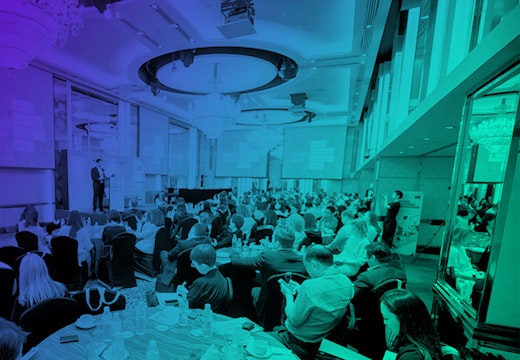Sex, pubs and chatbots mingle at Manchester conference
Innovation and automation were on the schedule at the recent WORKTECH Manchester event as WORKTECH returns to the city for the first time in ten years
What do sex, pubs and chatbots have in common? Well, they were all topics of discussion at the recent WORKTECH Manchester event on 28 June 2023, which saw workplace professionals and experts gather at Circle Square to tackle some of the major issues facing the future of work.
So what did we learn?
Sex, burnout and innovative solutions
Elizabeth Nelson, Co-Founder and Head of Research & Innovation at Smart Building Collective Certification, gave a keynote address on burnout and how workplaces can reduce it. Nelson highlighted how burnout doesn’t exist in the medical dictionary in America – instead it’s in the psychological dictionary under social problems. This suggest that the ways we are encouraged to work are dangerous to our health and wellbeing, but that this is preventable.
Encouraging staff to eat, socialise, sleep and yes, have sex, at the office has become the norm, but this is not a sustainable model of work for our health. Nelson also discussed how the modern office is built for around 10 per cent of the population who are able to work in open-plan conditions. In reality, different people work better at different times of the day and in different conditions, so why are our offices all the same? What we need, said Nelson, is innovation, a willingness to explore new ideas and trial alternatives in order to work towards a built environment that supports our mental wellbeing.
First impressions count
Joanna Swash, CEO of Moneypenny, and writer and workplace expert Julia Hobsbawm took to the stage to discuss the future of front-of-house staff. Despite discussions around the role of AI and automation in customer interaction, Joanna Swash asked companies if they wanted more automation instead of staff and found that 83 per cent think that real human beings will be front of house for the next five years.
This result suggests that there is something fundamental about being welcomed by another person, which technology cannot yet replicate. Being greeted is tied to how someone feels when they walk into a building. Greeters are often the first chance a company has to make a positive impression, making that interaction crucial for customer and employee experience. And employee experience is high on the agenda with Moneypenny whose in-house pub is hit with all its employees – could this become a trend? Only time will tell.
Transformative power of AI
Will we all stop work one day and let AI rake in the money for us? It seems unlikely right now, but this is the reality that Daniel Hulme, CEO of Satalia, believes in. For Hulme there are two definitions of AI – one is simply getting computers to do things that humans can do, this tends to be the definition most of us know. But the better definition is goal-directed adaptive behaviour, meaning that something can adapt its behaviour to overcome obstacles in the pursuit of its goal. Ultimately this is what we want from AI – a problem-solving machine with laser focus.
Hulme took us through the different roles that AI can perform, from chatbots and deep fakes to cybernetics, highlighting the ways in which AI is a danger and a benefit to both individuals and the workplace. But he also cautioned against the irresponsible use of AI, highlighting the need to make sustainable decisions to save resources and the role of AI in perpetuating biases. It’s hard to know whether to feel worried or excited about Hulme’s artificially intelligent future, but his passion and knowledge are undeniable.
Find out more about the next WORKTECH events here.








